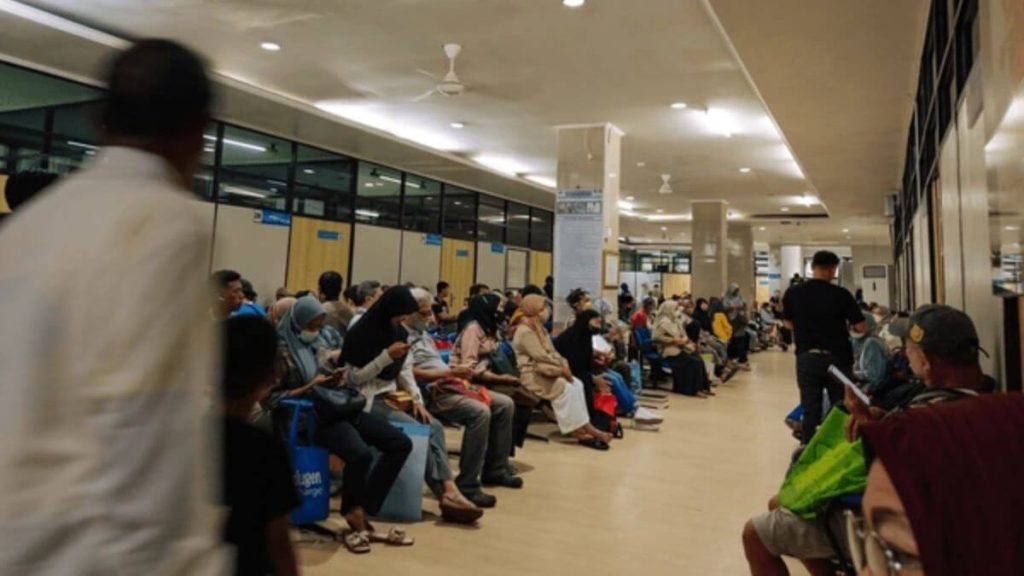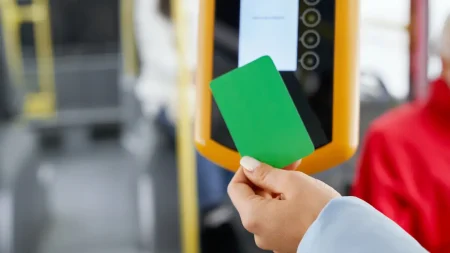For many Gauteng people, accessing healthcare might be challenging. Chronic medicine collection and appointment scheduling are sometimes hampered by long lines at clinics, transportation expenses, and time away from work. For individuals on social handouts, seniors, and those with impairments, even a single cab ride to a public clinic might significantly deplete their limited funds.
The good news is that a number of Gauteng government and non-governmental organisation initiatives are assisting locals in lowering or doing away with transit obstacles. There are free or subsidised choices that can make your trip easier and more economical, whether you need to travel for a medical check-up, specialist appointment, or medication pick-up.
This guide explains what’s available, who qualifies, and how to access these services across Johannesburg, Tshwane, Ekurhuleni, Sedibeng, and the West Rand.
Why Free Clinic Transport Matters
The everyday struggle
Transport remains one of the biggest barriers to healthcare access in Gauteng. For many low-income residents, the cost of a round-trip taxi fare to the clinic can exceed the cost of groceries for a day. Some people skip appointments or stop treatment altogether because they cannot afford transport.
Missing routine check-ups or medication pick-ups can cause serious complications for conditions such as HIV, diabetes, high blood pressure, and TB. Patients who interrupt treatment may also face drug resistance or disease relapse, which increases the strain on the healthcare system.
Who benefits the most
Free or subsidised transport programmes have an outsized impact for:
- Chronic patients who need regular appointments or repeat prescriptions.
- Elderly citizens who rely on others for mobility.
- People with disabilities or limited mobility.
- Low-income earners, domestic workers, and informal traders who lose income when they miss work for clinic visits.
- Residents in townships and peri-urban areas who live far from healthcare facilities.
Improving access to transport directly improves health outcomes — fewer missed appointments mean better adherence to treatment and fewer hospital readmissions.
CCMDD (Dablapmeds) — Free Medication Pick-Up Without Travelling to the Clinic
The most crucial program lowering the need for clinic visits is the Central Chronic Medicine Dispensing and Distribution (CCMDD) program, which is known as Dablapmeds in Gauteng. Pick-Up Points (PuPs) are handy external places where stable individuals on chronic medicine can pick up their treatment.
How CCMDD works
Patients who are stable on chronic medication (such as for HIV, diabetes, hypertension, asthma, or epilepsy) can register through their clinic or hospital to collect a two- or three-month supply of medication from a participating pharmacy, post office, or community centre — often closer to home or work.
You’ll only need to visit your clinic twice a year for routine check-ups, which drastically reduces travel and waiting times.
Eligibility
You qualify if:
- You’re stable on treatment for at least six months.
- You have a valid South African ID, passport, or asylum-seeker number.
- Your clinic or doctor recommends you for the programme.
Registration process
- Visit your public clinic and ask about the CCMDD or Dablapmeds programme.
- Undergo a stability assessment by your nurse or doctor.
- Choose a convenient pick-up point from the list provided (you can change it later via the helpline).
- Receive a collection card and SMS reminders for your medication dates.
- Collect your sealed medication parcel — discreetly packaged — within seven days of the SMS reminder.
If you’re unable to collect personally, you can nominate a proxy (a trusted family member or friend) to collect on your behalf using your card and their ID.
Pick-Up Points across Gauteng
There are over 200 registered PuPs across the province, including:
- Post Offices (open until 17:00 on weekdays and Saturday mornings)
- Private retail pharmacies such as Clicks, Dis-Chem, and MediRite
- Community halls and churches
- Workplace and shopping-centre dispensaries
Many post offices and pharmacy points are located within walking distance of residential areas in Johannesburg, Ekurhuleni, and Tshwane, saving patients taxi costs of up to R60 per trip.
Benefits for Gauteng residents
- No clinic queues or long travel — collection is quick and local.
- Free service with SMS reminders and flexible pick-up dates.
- Anonymous packaging for privacy.
- Two- to three-month medication supply, reducing travel frequency.
- 48-hour grace period for late collections before rescheduling.
Contact details
- Toll-Free Helpline: 0800 031 312 or 0801 313 992
- Website: health.gov.za/ccmdd or getcheckedgocollect.org.za
If you recently started treatment (for instance, newly diagnosed with HIV), your clinic may refer you to an NGO-supported care network for your first year before transitioning you to CCMDD once stable.

Gauteng Scheduled Emergency Transport (G-SET) — Free Shuttle for Medical Appointments
The Gauteng Scheduled Emergency Transport (G-SET) programme is another major initiative run by the Gauteng Department of Health’s Emergency Medical Services (EMS). It provides free inter-facility transport for patients who need to travel between clinics and hospitals for scheduled appointments or follow-ups.
Purpose of the programme
Before G-SET, many non-emergency patients relied on ambulances for transfers between facilities, causing delays for emergency responses. The G-SET shuttle system solves this by providing dedicated transport for non-emergency, scheduled trips.
Who qualifies
You qualify for G-SET if:
- You are a public healthcare user referred to another facility for a scheduled appointment, such as specialist consultations, dialysis, or follow-ups.
- Your doctor or nurse requests the service on your behalf.
Note: G-SET does not provide home-to-clinic transport — it moves patients between facilities only.
How it works
- Your clinic or hospital doctor books your trip on the G-SET scheduling platform.
- You’ll receive a pickup and drop-off time (routes are fixed and operate 24/7).
- The shuttle collects you at your clinic and transfers you to the next facility.
- After your appointment, you’re returned to your original facility.
Coverage
- Rolled out province-wide in 2023 after successful pilots in Johannesburg, Tshwane, and Ekurhuleni.
- Operates along fixed routes connecting public hospitals, regional clinics, and specialised care centres.
- Helps free up ambulances for emergency calls.
Benefits
- Completely free of charge.
- Scheduled and reliable, reducing long waiting times for transfers.
- Province-wide coordination under the EMS system.
Limitations
- Not a home pick-up service — only for clinic-to-hospital travel.
- Must be booked by a healthcare worker; you cannot self-book.
Contact details
- Emergency Line: 10177 (for life-threatening cases)
- Website: gauteng.gov.za
- Ask your local clinic transport desk for the G-SET coordinator in your district.

NGO and Community Transport Services in Gauteng
Several non-government organisations (NGOs), charities, and community health groups provide free or subsidised transport to help people reach clinics and hospitals — particularly in low-income, informal, or remote areas. These services often target vulnerable groups such as the elderly, people with disabilities, or households below the poverty line.
Major NGO and Community Programmes
| NGO / Programme | Services Offered | Eligibility & Coverage | How to Apply / Contact |
|---|---|---|---|
| Witkoppen Health & Welfare Centre (Mobile Clinic Service) | Free mobile clinics visit informal settlements such as Diepsloot, Lion Park, and Msawawa. Provides check-ups, medication collection, HIV testing, and health education — eliminating travel needs. | Residents of serviced communities; no ID required. | Call 011 705 2497 or visit witkoppen.org.za. Schedule via community outreach team. |
| Phelophepa Health Train | Provides free medical, dental, eye-care, and mental-health services aboard a train that travels to rural and underserved areas. Dispenses medicines immediately on site. | Open to all; visits Gauteng annually (stops near Johannesburg, Ekurhuleni, and Pretoria). | Toll-free 0800 010 339 or phelophepa.org. Check the annual timetable for 2025. |
| Qhubeka Charity (Bicycle Mobility Programme) | Offers free bicycles to learners and residents for essential travel to schools or clinics. Reduces ongoing transport costs. | Grade 9–12 learners and youth in rural or peri-urban Gauteng. | Apply via local schools or qhubeka.org. |
| Thuto Boswa Rehabilitation Centre | Provides door-to-door transport for people with disabilities to attend medical appointments, therapy, or rehabilitation sessions. Partners with other NGOs for additional support. | People with physical or mental disabilities within Gauteng. | Contact thutoboswa.org or your local disability coordinator. |
Finding other NGOs
- Use the Gauteng NGO Directory or contact your local clinic social worker for a referral.
- Many smaller organisations partner with clinics to coordinate patient transport in specific wards or communities.
- Faith-based groups and church outreach programmes frequently assist pensioners or disabled residents with clinic trips.
Why NGOs matter
NGO transport fills the gaps where government services do not reach. They provide human-centred care — often offering door-to-door pick-ups or mobile medical units that visit communities directly. For vulnerable residents, these initiatives can mean the difference between consistent treatment and missed care.
Read more: List of NGOs Offering Free Disability and Chronic Care Services (Updated October 2025)
What to Know Before Using These Services
Required documentation
To enrol or request transport:
- Clinic card / patient record showing your appointment.
- Valid ID, passport, or asylum number (for CCMDD registration).
- Referral letter or booking slip for G-SET or NGO transport.
- If using a proxy for medication pick-up, provide both your collection card and their ID.
Booking timelines
- CCMDD pick-ups: collect within seven days of SMS reminder.
- G-SET transfers: request immediately after receiving an appointment date.
- NGO transport: book at least three to five days before the clinic visit (schedules vary).
Helpful questions to ask
When visiting your clinic or calling a programme:
- “Do you offer patient transport assistance in this area?”
- “Am I eligible for the CCMDD/Dablapmeds programme?”
- “Is there a local NGO that assists with clinic transport?”
- “Can someone collect medication on my behalf if I can’t travel?”
Reducing Transport Costs in Other Ways
If you don’t qualify for free transport, there are still ways to reduce costs:
- Join community taxi pools: Some clinics coordinate shared minibus rides on fixed days.
- Ask your ward councillor’s office about community health transport.
- Use social-grant funds strategically: Prioritise combining clinic visits with other errands (e.g., grant collection days).
- Check local outreach schedules: Mobile clinics often visit informal settlements once a month.
For emergencies, always call 10177 for free ambulance assistance — but remember, this line is for life-threatening situations only.
Useful Contacts and Resources
| Service / Programme | Contact Information |
|---|---|
| Gauteng Department of Health (Head Office) | 45 Commissioner Street, Johannesburg 2001 • Tel: 011 355 3000 / 3503 • gauteng.gov.za |
| CCMDD / Dablapmeds Helpline | 0800 031 312 / 0801 313 992 • health.gov.za/ccmdd |
| Gauteng EMS / G-SET Coordination | 10177 (Emergencies) • gauteng.gov.za |
| Phelophepa Health Train | 0800 010 339 • phelophepa.org |
| Witkoppen Mobile Clinic | 011 705 2497 • witkoppen.org.za |
| Thuto Boswa Rehabilitation Centre | thutoboswa.org |
| Qhubeka Bicycle Mobility Programme | qhubeka.org |
| City of Johannesburg Health Directorate | 011 407 6780 • joburg.org.za |
| National Department of Health | health.gov.za |
Frequently Asked Questions (FAQs)
Q: How do I know if my clinic is part of the CCMDD programme?
A: Ask the nurse or pharmacist at your clinic. Most Gauteng public clinics are already linked to the Dablapmeds system.
Q: Can I collect my medication if I lose my card?
A: Yes, visit your clinic for a replacement card or contact the helpline for instructions.
Q: What if I move to a new area?
A: You can transfer your CCMDD pick-up point to another province or town via the toll-free line.
Q: Are there free rides for pensioners or people with disabilities?
A: Some NGOs and community groups (like Thuto Boswa) offer such services; ask your local councillor or social worker.
Q: How often does the Phelophepa Health Train visit Gauteng?
A: Typically once a year, with schedules released in advance on the Phelophepa website.
Q: How do I change my CCMDD pick-up point or phone number for SMS reminders?
A: Call the CCMDD toll-free line or ask at the clinic pharmacy. Updates usually apply from the next refill cycle.
Q: What must a proxy bring to collect on my behalf?
A: Your collection card, your ID number or copy of ID, the proxy’s ID, and the SMS with the collection date. Some sites request a short consent note.
Q: What happens if I miss the 7-day collection window?
A: The parcel returns to the distributor or clinic for re-booking. Visit the clinic or call the helpline to arrange a new date to avoid treatment interruption.
Q: Are there any fees for CCMDD pick-ups?
A: The service is free. Pick-up points such as post offices and most retail pharmacies dispense parcels at no charge. You only cover transport to the site.
Q: How do I get transport for a hospital referral under G-SET?
A: Speak to your clinic nurse or doctor. The facility submits a request on the G-SET platform and provides your pickup and drop-off times. Self-booking is not available.
Transport issues shouldn’t cause anyone in Gauteng to skip doctor’s visits or go without medication. The goal of the CCMDD program, G-SET shuttle, and other NGO transport services is to increase the accessibility, affordability, and dependability of public healthcare.
Start by enquiring about the Dablapmeds registration or transit referral possibilities at the clinic that is closest to you. These services can save you hundreds of dollars in travel expenses each year and hours of waiting if you qualify.










